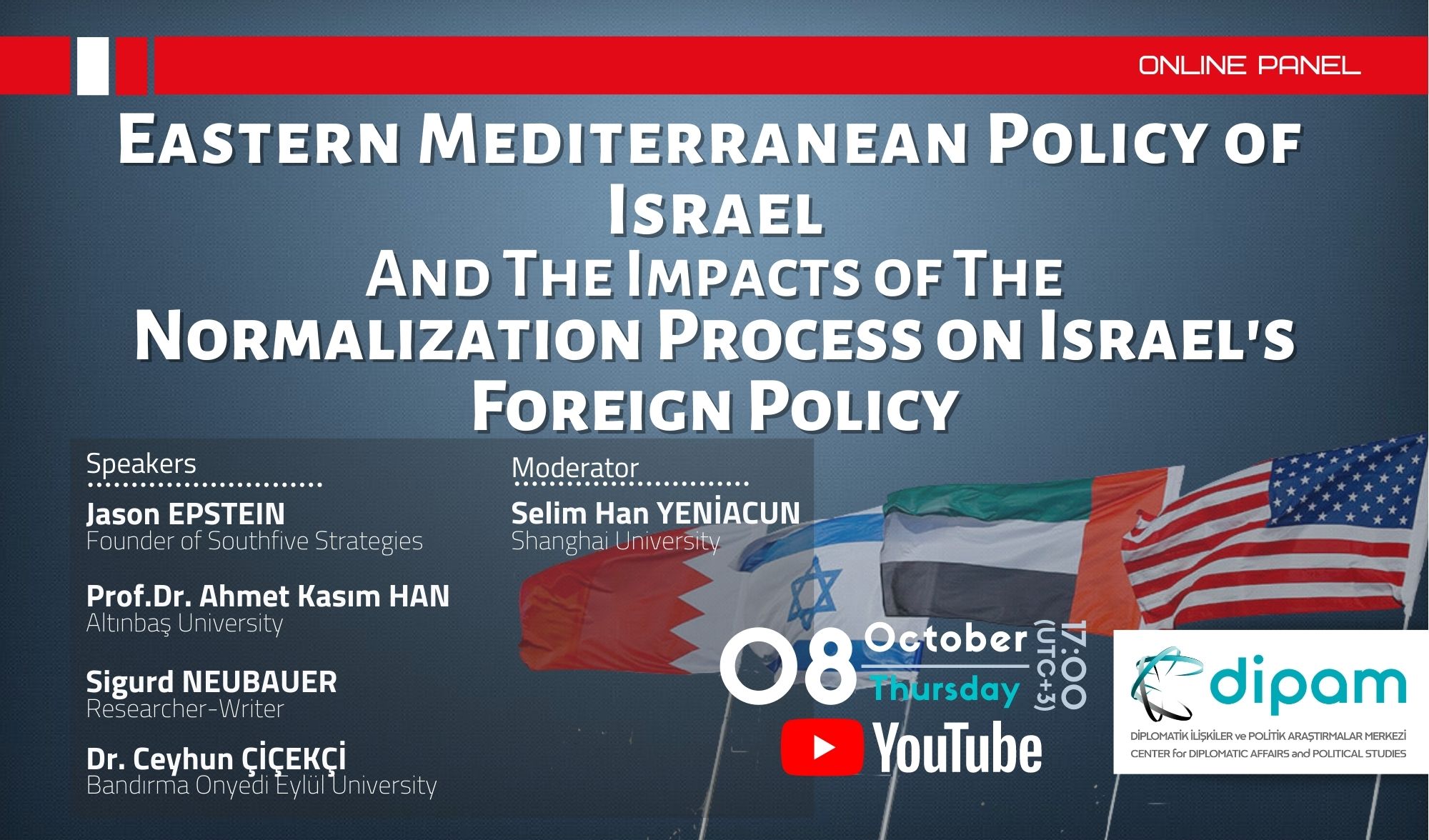
“The Eastern Mediterranean Policy of Israel and The Impacts of The Normalization Process on Israel’s Foreign Policy” Online Panel
As it was in the past, Israel started to be more closely interested in the Eastern Mediterranean, especially with the drilling works in marine areas, which became more widespread at the beginning of the 21st century. Realizing the importance of the Eastern Mediterranean in terms of energy and transportation by the reason of geopolitical difficulties, Israel has given great importance to drilling activities in the region. As a result of these energy activities, Israel discovered fields rich in terms of gas. It is estimated that these fields contain approximately one trillion BCM (Billion cubic meters) of gas in total. The production efforts after the discoveries made a great contribution to the economy of Israel.
Israel signed an EEZ agreement with the Greek Cypriot Administration of Southern Cyprus (GCASC) in the Eastern Mediterranean, subsequently declared its Exclusive Economic Zone in 2011, and speed up exploration and production efforts with foreign energy companies. Thanks to these discoveries, Israel got rid of the position of the importer in terms of natural gas, became an exporter, and changed its internal energy policy. As part of the Eastmed Natural Gas Pipeline Project, which it plans to actualize for export within the framework of the Eastern Mediterranean policy, Israel is in cooperation with GCASC Greece and the EU. Also, taking part in the Eastern Mediterranean Gas Forum, Israel pursues regional and international partnerships in terms of energy and economy.
Israel is trying to open up a new radius of action in the Middle East as well as in the Eastern Mediterranean. The normalization process of Israel, lately which started with the UAE and then continued with Bahrain, was welcomed by Egypt, Jordan, and Oman in the region. This process has been criticized by Iran, Turkey, and Qatar. This process, which can be seen as the beginning of a significant change in the balance of power in the Middle East, is thought to will significantly affect Israel’s foreign policy, especially in the context of the region. This situation has brought the sharp changes in Israel’s foreign policy and possible cooperation with the Arab world into the agenda. The normalization movement conducted in the context of the principle of national and mutual interest offers both parties and other possible states opportunities for more trade and cooperation. This process that begins with the UAE has opened the door for other Arab countries to follow policies in the same way. In this process, in which the negative effects of Israel’s loneliness in the region on itself will be broken, its effect on its foreign policy will be inevitable.
The Online Panel, which is to be held with the participation of Researcher Selim Han YENİACUN from Shanghai University Global Governance Center, Jason EPSTEIN from Southfive Strategies LLC, Prof. Dr. Ahmet Kasım HAN from Altınbaş University, Researcher-Author Sigurd NEUBAUER, and Dr. Ceyhun ÇİÇEKÇİ from Bandırma Onyedi Eylül University, will take place on Thursday, October 8, 2020 at 17.00 GMT+3, in DİPAM YouTube Channel. The language of the event will be English and there will be no translation.
Topics To Discuss:
Israel’s Eastern Mediterranean and Energy Production Policies
Israel’s position in collaborations such as EastMed and the Eastern Mediterranean Gas Forum
Management of the normalization process and its impact on the region
Israel’s bilateral and multilateral relations in the region
Eastern Mediterranean and Regional Normalization in the main arguments of Israeli Foreign Policy
Speakers
-
 Dr. Ceyhun ÇİÇEKÇİBandırma Onyedi Eylül University
Dr. Ceyhun ÇİÇEKÇİBandırma Onyedi Eylül UniversityHe is a lecturer at Bandırma Onyedi Eylül University. He completed his undergraduate, graduate, and doctoral studies in the profession of International Relations. At the international level, he has been a writer/consultant/speaker at think tanks such as The Institute for National Security Studies (INSS), Moshe Dayan Center for Middle Eastern and African Studies (MDC), The Israeli Institute for Regional Foreign Policies (MITVIM). At the national level, He has worked for many national think tanks and news agencies.
-
 Jason EPSTEINSouthfive Strategies LLC
Jason EPSTEINSouthfive Strategies LLCJason Epstein is a consultant with more than a quarter-century of professional experience in government relations, media affairs, and cultural outreach. He founded Southfive Strategies, LLC in November 2002, a consultancy providing clients access to members of the executive branch, congressional leaders, important media organizations, business leaders, think tanks, and human rights organizations.
Clients have included the Turkish Embassy in Washington, Turkish Republic of
Northern Cyprus’ Washington office, Muslim World League in Mecca, Azerbaijan
Diplomatic Academy in Baku, Bahcesehir University in Istanbul, World Jewish Restitution Organization in Jerusalem, American Cinema Foundation in Los Angeles, and The Israel Project in Washington.
Epstein served as an adjunct lecturer at Bahcesehir University in Istanbul in 2013 and at Mykolas Romeris University in Vilnius in 2014.
He was a National Review Online contributor from 2011-15 and his byline has also
appeared in The Washington Examiner, The Federalist, and Hurriyet Daily News.
From 1997 until 2003, Epstein worked as the director of legislative affairs at B’nai
B’rith International, the world’s most recognized Jewish service organization.
From 1992 until 1997, he worked as a legislative aide for US Congressman Benjamin A. Gilman, who became Chairman of the House International Relations Committee in 1995.
Epstein obtained a law degree from American University’s Washington College of
Law and earned a Master’s Degree in Business Administration from AU’s Kogod
School of Business. He is a graduate of the State University of New York at Albany. -
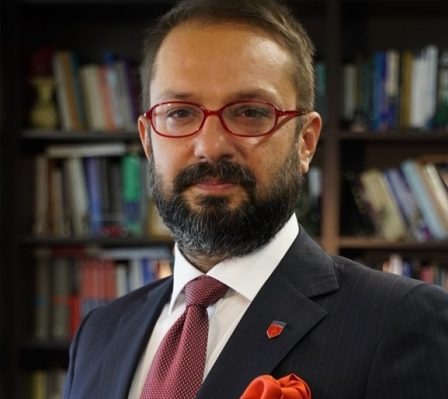 Prof. Dr. Ahmet Kasım HANIstanbul Aydin University
Prof. Dr. Ahmet Kasım HANIstanbul Aydin UniversityProf. Dr. Ahmet Kasım Han received an undergraduate, graduate, doctorate, and post-doctoral degrees in economics, international relations, strategy, finance, and negotiation strategies at Istanbul, Boğaziçi, Koç, and Harvard Universities. He is a lecturer at Altınbaş University Faculty of Economics, Administrative and Social Sciences, Department of International Relations in Istanbul.
-
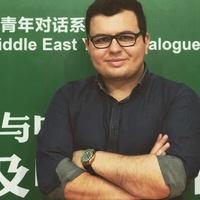 Selim Han YENİACUNShanghai University Global Governance Center
Selim Han YENİACUNShanghai University Global Governance CenterSelim Han Yeniacun is a Ph.D. candidate at Shanghai University Global Studies Program. He graduated from the Department of Political Science and International Relations at Marmara University in 2013. He took his first MA degree from the same university’s Middle Eastern and Islamic Countries Research Institute in 2016. He also obtains a second MA degree in Israel Studies at the Hebrew University of Jerusalem. Yeniacun’s research intrests are American missionary movements in the Middle East, China-Israeli Relations, China-Middle East Relations, Turkish Foreign Policy and Israeli Foreign Policy.
-
 Sigurd NEUBAUERAuthor
Sigurd NEUBAUERAuthorSigurd Neubauer is an internationally recognized authority on the Gulf Cooperation Council (GCC), Persian Gulf Security, U.S.-Arab relations, Middle East politics, Arab-Israeli relations, Afghanistan, and U.S. defense industry. His expertise also includes NATO, Norwegian defense policy and transatlantic relations. He is the author of “the Gulf Region and Israel: Old Struggles, New Alliances”.


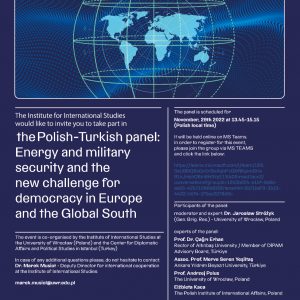
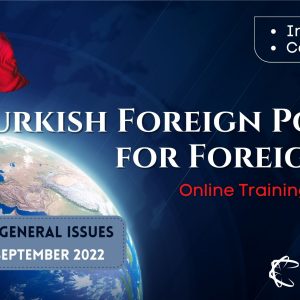
Comments are closed.